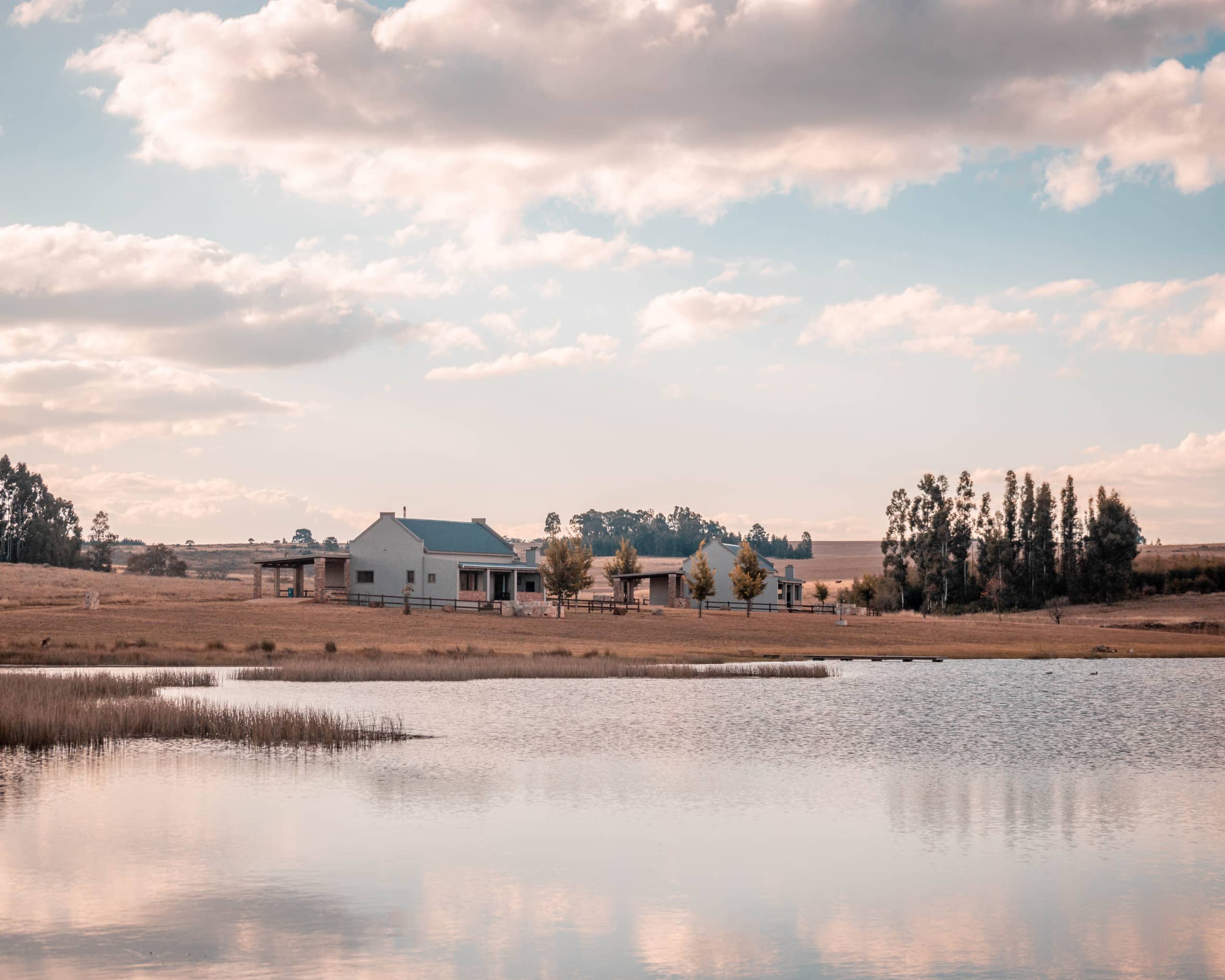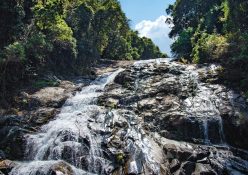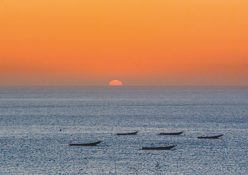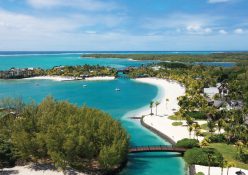Whether you like to cast a line for fish or simply need a break in the countryside, Dullstroom has you covered
The Crocodile River – which indeed houses crocodiles – originates just north of Dullstroom in the wild Steenkampsberg Mountains. From here it winds east past Nelspruit, through Lowveld farmland, before finally forming the southern border of the Kruger National Park. At about 2 077 metres above sea level – this is roughly two Table Mountains up – Dullstroom is of South Africa’s highest towns. And it literally has its head in the clouds. Swathed in mist most of the year, with rolling thunderstorms in summer, this eastern escarpment settlement in Mpumalanga packs a pretty punch: think jewel green hills, waterfalls and lakes curled in lush crevices. However, beneath this postcard- pretty facade beats a bristling heart, which not even lockdown could crush for long. Indeed, city dwellers flock to the town to cast lines for trout, and find good food and all things quaint. Two-and-a-half hours away from Joburg (256 km), this weekend influx is known as ‘the Dullstroom Dash’. A popular escape, the five-star Walkersons Hotel & Spa sprawls among hills and ravines, with plenty of budget-friendly self-catering cottages on offer, too.
Those visitors who remain beyond Sunday will have you know: There’s nothing dull about Dullstroom. A fact possibly evidenced in its name change; the town’s full name is now Dullstroom-Emnotweni. Emnotweni is Zulu slang for ‘place of prosperity’ or ‘where the money is at’. Originally named after Dutch merchant Wolterus Dull, who founded the village’s first shop and planted its trademark elm and beech trees, the area’s present municipality dam was built in 1965, and stocked with 17 000 trout fingerlings.
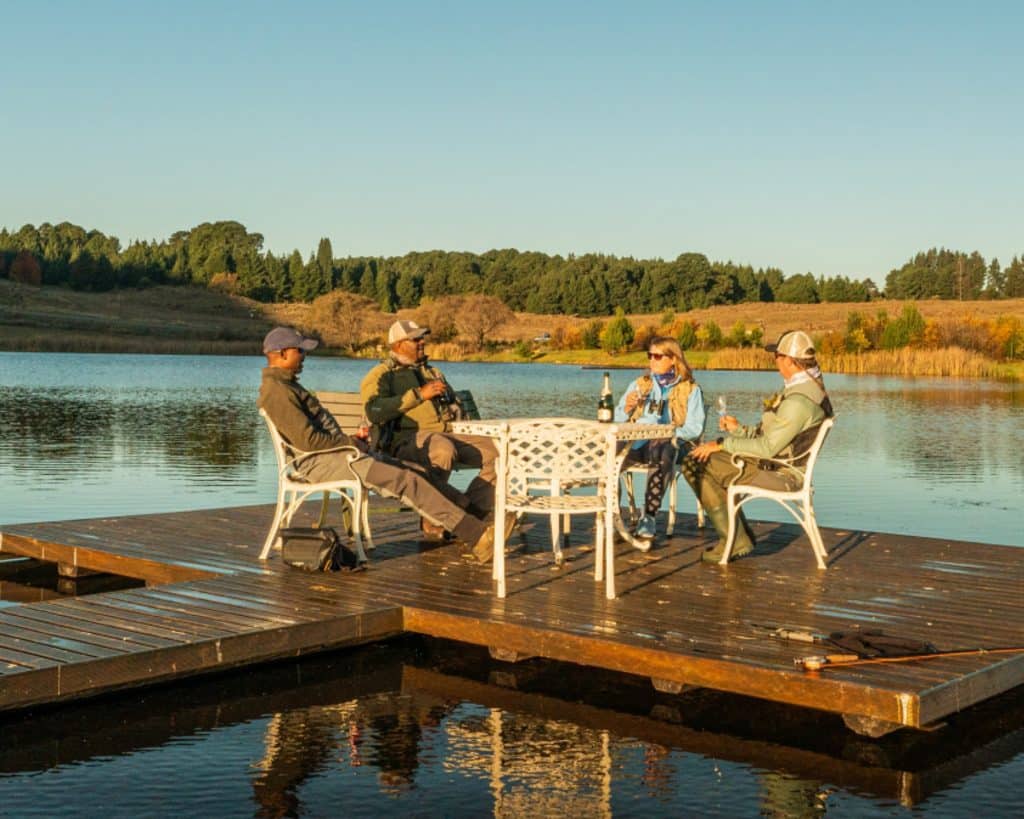
Today Mavungana Flyfishing caters to those casting in surrounding lakes. Despite tough times during lockdown, Mavungana still claims to be South Africa’s largest fly-fishing outfitter, catering for young and old at its premises featuring a 20 m casting pond inhabited by pet rainbows, golden trout and black bass. Its founder, zoologist Jonathan Boulton, moved to Dullstroom in 1994. He recalls how the town has swelled since the ’90s, which was when it merely consisted of the Dullstroom Inn and a handful of shops.‘Traditionally it was made up of hard-working cattle farmers, mielie farmers and trout farmers,’ says Jonathan. ‘Then, as the town grew, more and more pubs shot up, competing for clients; I mean there was a happy hour at a different pub every day of the week. People even joked that Dullstroom is a small fishing town with quite a big drinking problem.’
For example, he says, local bar Wild about Whisky, claims to house the southern hemisphere’s biggest whisky selection – with more than 1 000 single and blended malts, bourbons and single-grain whiskies available. Mavungana is based in a converted house in Naledi Drive at the town’s entrance, which is where experts offer fly-fishing lessons. ‘Instructors explain the gear and how to cast. It’s tricky as flies weigh nothing, they’re made of fluff and feathers,’ says Jonathan. ‘The art and challenge is to lure trout with the fly, which is made to resemble actual food. So you’re trying to fool Mother Nature with an imitation of nature.’
He adds that trout-fishing quotas depend on individual landowners, but that generally fly fishing is governed by a catch-and-release principle.There’s more to Dullstroom than fish. Two kilometres outside town, at the Dullstroom Bird Of Prey and Rehabilitation Centre, conservationist Frith Douglas tends to sick mammals and birds – referring to them as her ‘patients’. The centre’s hospital accepts all wildlife – and even fertilised eggs. Frith relays how, a few years back, a nearby farmer accidentally killed a mum owl. They discovered her nest with one fertilised egg – which Frith put in an incubator. The eggs hatched, and the chick was subsequently raised by the centre’s surrogate owl mum, named Molly. Over the years, their patients from far afield have included a lesser spotted eagle all the way from Russia, who was admitted with a broken wing.
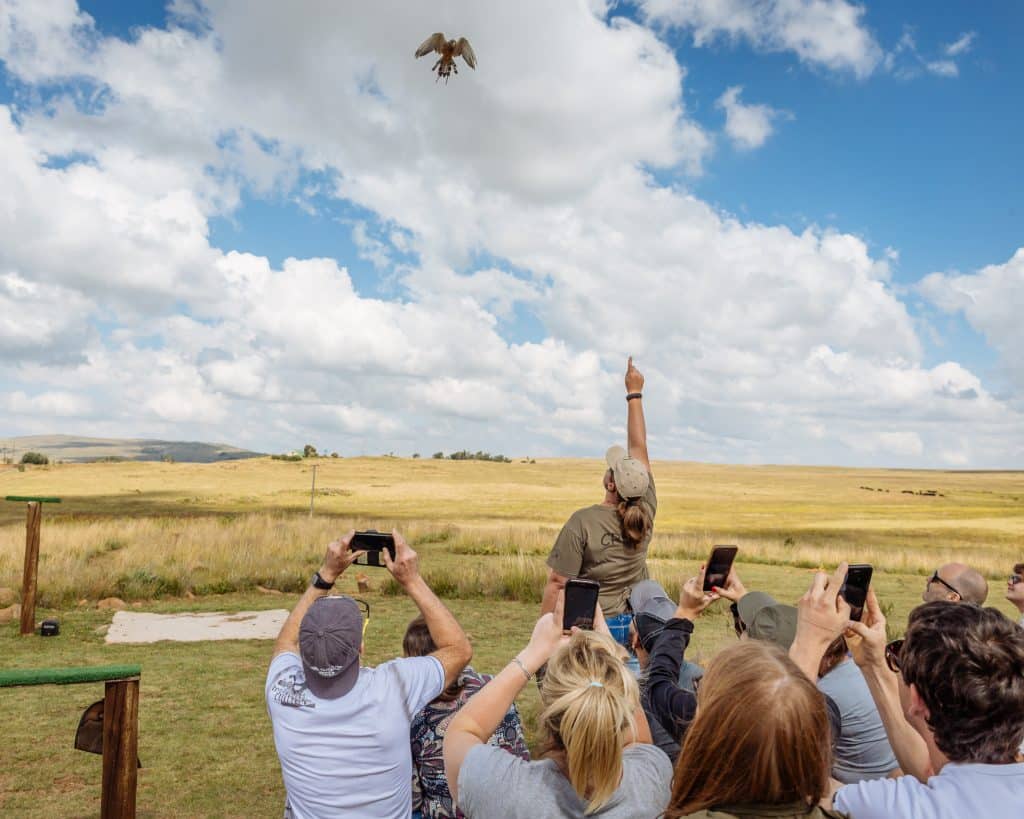
The centre struggled during lockdown and was forced shut for five months. ‘Times are still tight,’ says Frith, ‘But thanks to fundraisers and donations we’re back on our feet.’At the centre, Magdali Theron hosts flight demonstrations open to the public. ‘There’s just the two of us here and we really run around,’ says Frith. ‘Often it gets hard to go fetch our patients, so we really appreciate it when members of the public bring them to us.’
Waylaid raptors aren’t the only Dullstroom residents to have defected from Eastern Europe. One of the town’s more enigmatic characters is Branko Dimitrov, owner of the famous Dimitrov Art Gallery in Teding van Berkhout Street. The tall, black-bearded expressionist painter
(who will render your portrait in vivid brushstrokes if you book in advance) speaks English with slight hesitation, perhaps expected
of a Serb who emigrated to South Africa in 1993. Branko, his wife Buba, and their daughters Zoritza and Anjelina, moved to Dullstroom 14 years ago. He says the Highveld sky with its stark clouds reminded him of his childhood village in the far southern reaches of former Yugoslavia.
‘In 1991, the trouble started in Yugoslavia. I was not interested in being a part of the violence,’ he says. ‘If I had remained, I would have been expected to pick up a gun and shoot people, which I was not prepared to do. South Africa was the only country to grant visas to my family. In the beginning it was very difficult, but I believe that if you have an ability and are prepared to keep on trying, you must eventually have success. Now my work is shown around South Africa – I am content.’
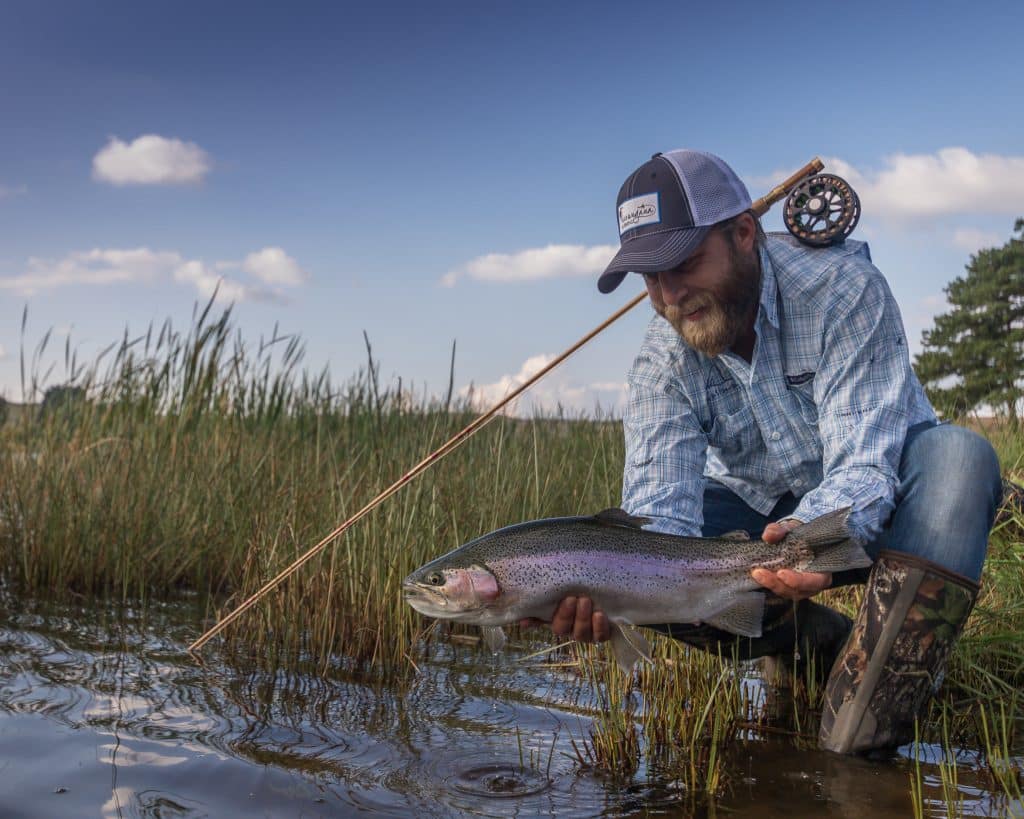
In his Dullstroom studio, Branko paints explosions of colour and light, often landscapes with cool moody skies, while listening to Chopin. And his self-built home offers visitors 360-degree views over the escarpment. While Branko paints, Buba manages the gallery; it’s a family business and Zoritza and Anjelina are artists, too. Buba says they are presently building a second gallery in the town, noting that visitor figures have picked up nicely since Covid travel paralysis. For those eager to hit the town’s culinary scene, Mrs Simpson’s Restaurant, also in Teding van Berkhout Street, is a preferred haunt. Founded by couple Bryan Wolmarans and Stephen de Meyer 17 years ago, the flamboyantly decorated restaurant has bright walls covered in portraits, with rows of vintage clutch bags and shoes donated by diners.
Notable regular Wallis, a furry tiger-striped cat, sadly passed away last year at the age of 19. ‘People brought flowers and ribbons to commemorate,’ says Stephen, adding that Wallis had been buried in the restaurant’s garden. Known for their signature fresh deboned trout (supplied by Lunsklip Fisheries, a trout farm in the nearby Kwena Basin), the restaurant is named after the American divorcee, Mrs Wallis Simpson, the late Duchess of Windsor, who caused a stir in 1930s London society when she started dating Edward, the Prince of Wales. Stephen, who moved to Dullstroom in 1993, says he finds joy in the town’s community life. ‘I enjoy the local residents, who tend to be kind and nurturing towards each other. Well, most of them,’ he adds as an afterthought, his eyes rolling at the thought of those unruly souls one finds even in the most genteel places on Earth.
Words by Biénne Huisman
Photography: Courtesy Images



